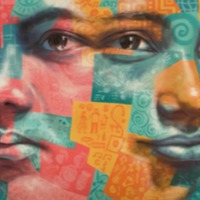
On one occasion the police found me naked and said, “Are you a prostitute? Get in the back of the van. Here’s a jacket and we’ll drop you back,”—back to the hands of the perpetrators. I was put in domestic violence refuges and then told that I did not fit the criteria because there was more than one perpetrator. I had given up thinking that there was any—I didn’t understand. I wasn’t fitting any criteria. As soon as I reached 18, it was no longer CSE or trafficking. There’s notes that clearly stated, “This person’s been trafficked,” but nothing was done. When I turned 18, I was told by the police that it was a lifestyle choice because I had access to a mobile phone.
[...]
It wasn’t until I’d called the Salvation Army, and after I’d explained and they got the referral and I was taken to the safehouse that they said, “Yes, this is tailored for this person.” My only complaint was that 45 days was not enough. It’s been [number] years and even now support is still needed for ongoing medical stuff.
Narrative provided by Hestia









